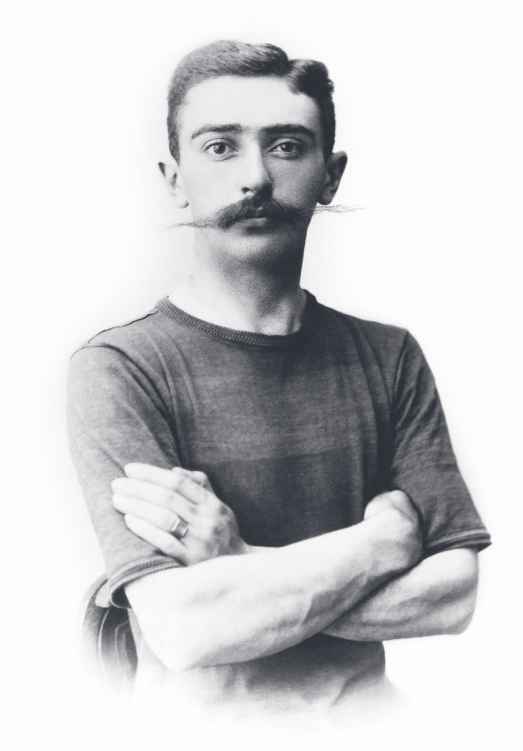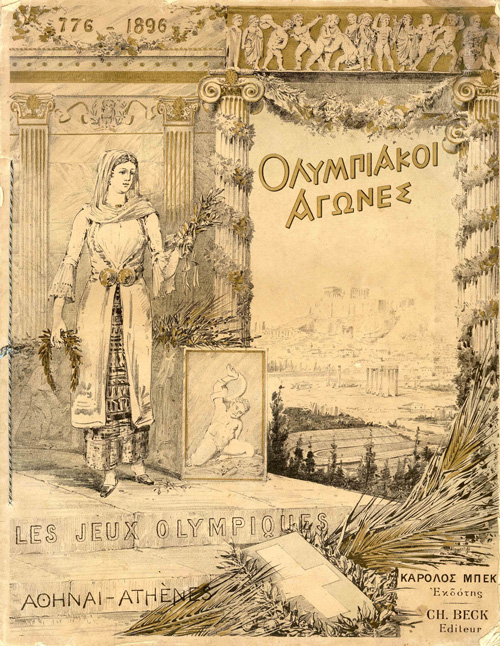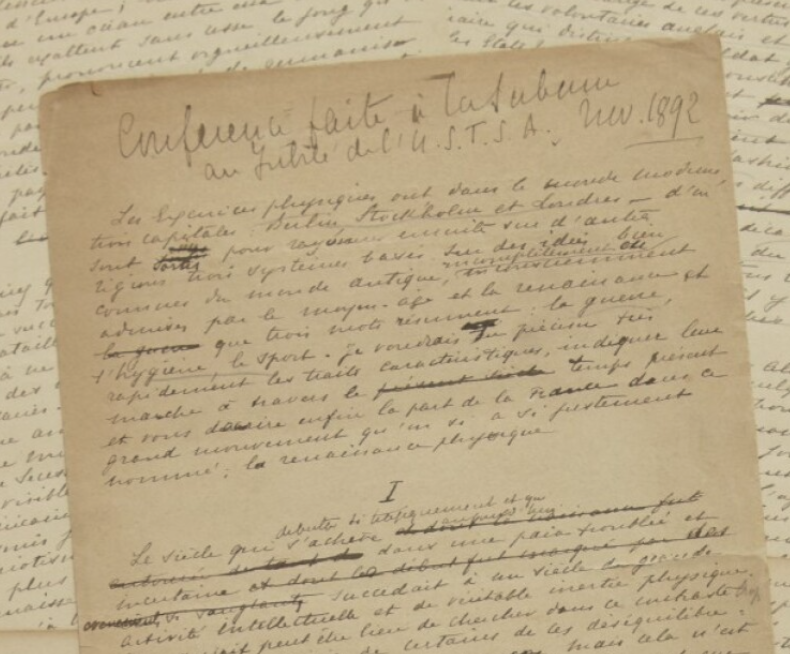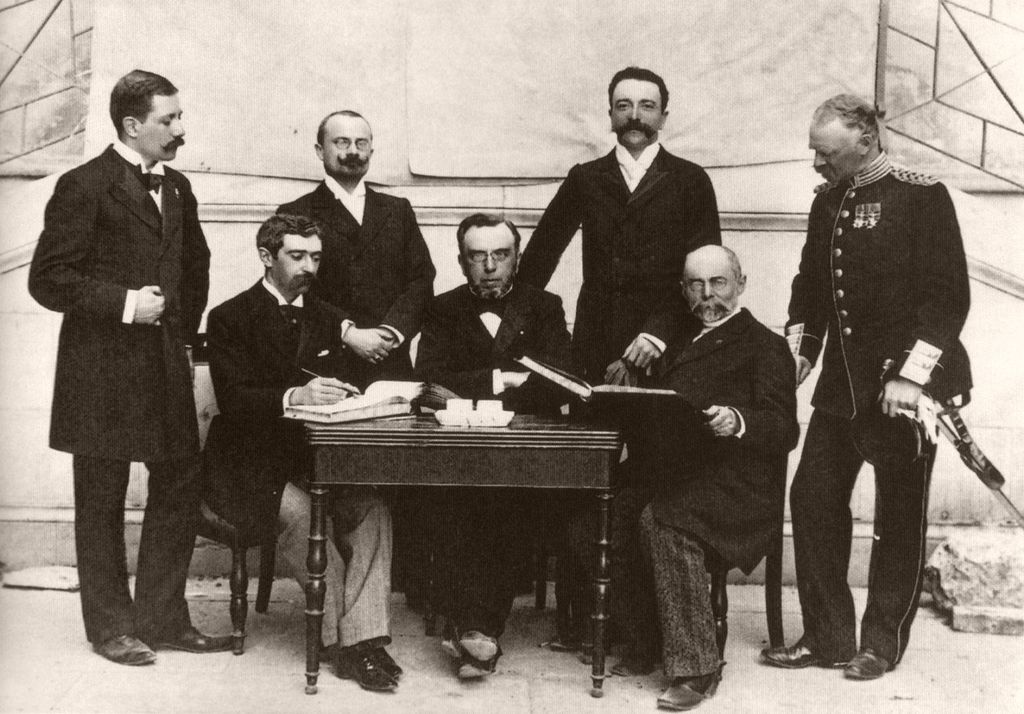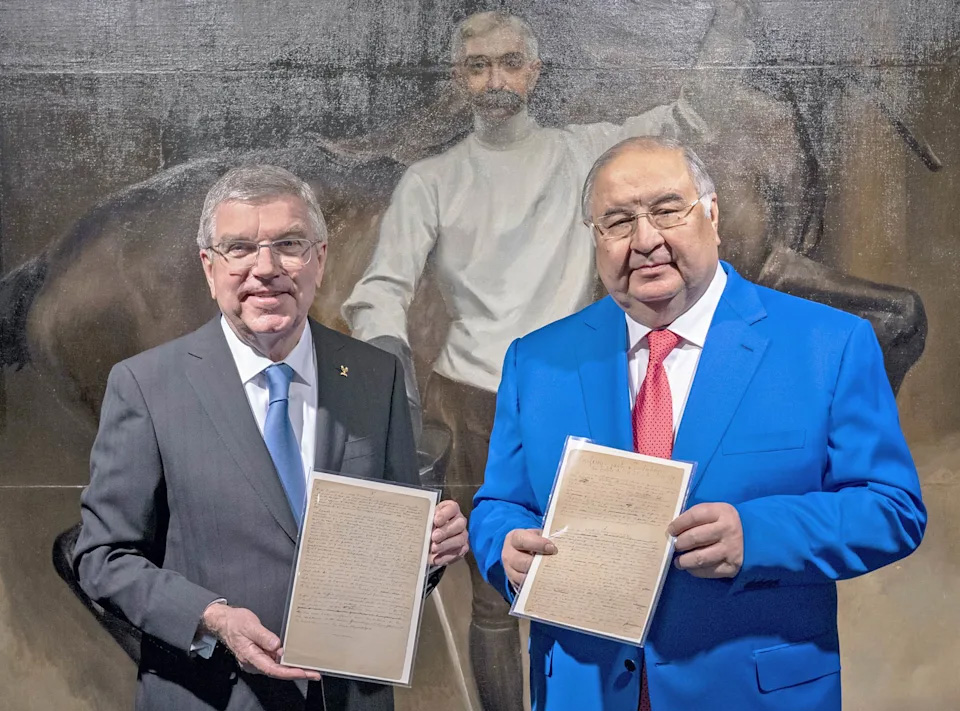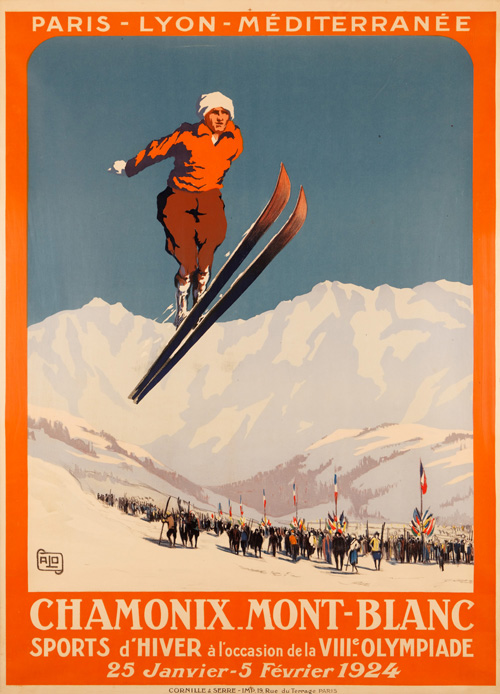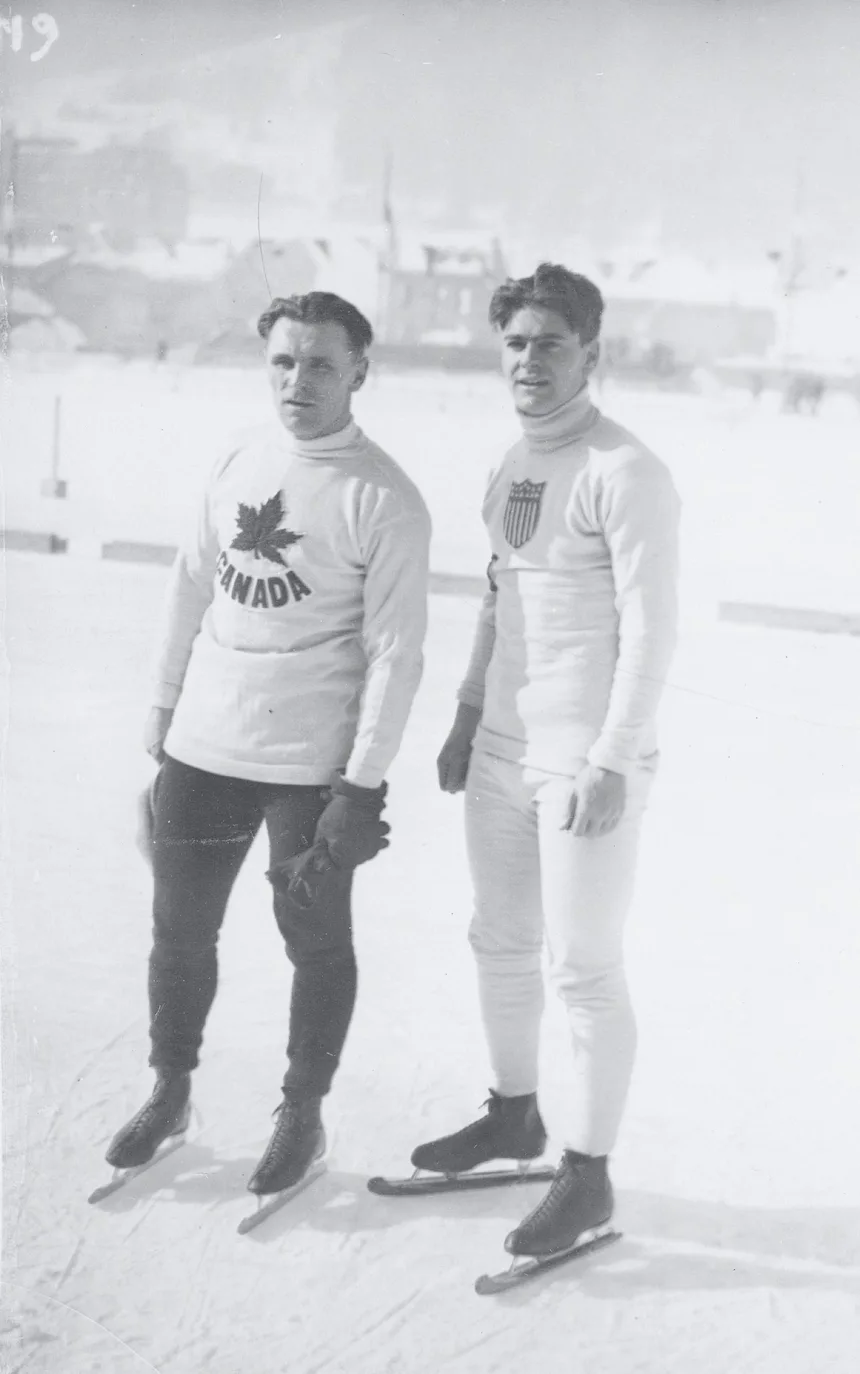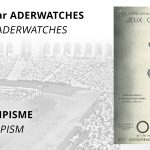THE GENESIS Under the impetus of Baron de Coubertin
“We swear that we come to the Olympic Games as loyal competitors, respectful of the rules which govern them and desirous of taking part in them in a spirit of chivalry for the honour of our countries and the glory of sport”.
Pierre de Coubertin
This quote from Baron Pierre de Coubertin (1863 – 1937) is a perfect illustration of the philosophy behind the Olympic Games. Combining a spirit of patriotism with the desire to surpass oneself, this multi-disciplinary competition is a meeting place where “Fair Play” is as important as performance. Born in Greece in the 8ᵉ century BC, the Olympic Games owe their name to the highest mountain in Greece, Mount Olympus, considered in Greek mythology to be the home of the gods. Historians agree that the last ancient Olympic Games probably took place in 393.
1,500 years later, one man revived this great tradition and, in 1896, inaugurated the first Olympic Games of the modern era.
The renovator of the Olympic Games
Although only 1.62 m tall, Pierre de Coubertin was one of the giants of the 20th century!
Born on 1ᵉʳ January 1863 in the 7ᵉ arrondissement of Paris, he has gone down in history as a personality inseparable from the world of sport. A man of letters, historian, humanist and great teacher, Pierre de Coubertin was above all a man of conviction. From 1883 onwards, he travelled extensively to England, where he took up several disciplines: rowing, boxing, horse riding and fencing. But his speciality was pistol shooting, and he even won the title of French Champion on several occasions! During his travels in England, he observed that sport was used by all the leading universities as a vehicle for moral and social education. This realisation was to prove a real revelation. Convinced that England’s power was largely based on its educational model, Pierre de Coubertin devoted his life to introducing sport into the French education system, and more broadly to making sport more popular in French society.
As a member of the Association des Journalistes Parisiens, he wrote over 1,200 articles on the subject in the French and international press, and over 34 books on sport, its practice, techniques and benefits. Deeply convinced that learning values such as solidarity, mutual aid and respect is essential, he supported the secular Scouts youth movement. He died in Lausanne in 1937 at the age of 74.
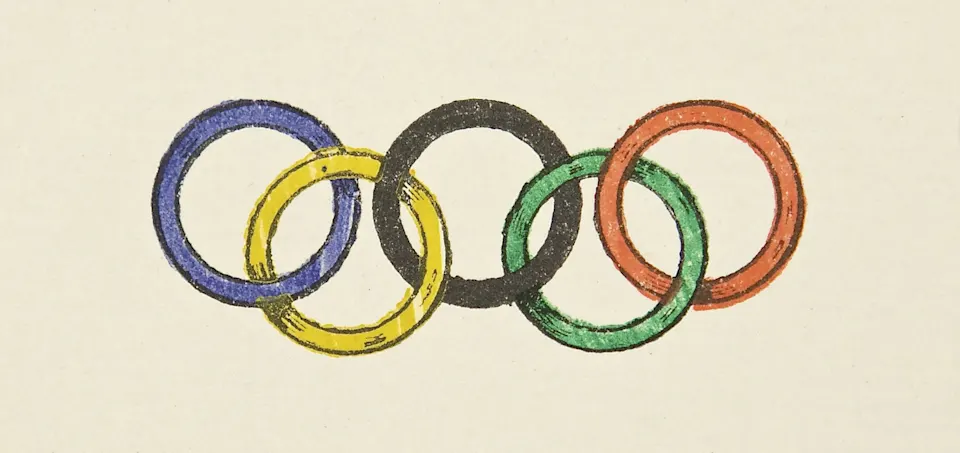
The Olympic Games manifesto
In 1892, Pierre de Coubertin wrote the Olympic Games Manifesto. In this founding text, he shared his vision of reviving the Olympic Games of Antiquity in the form of a modern, international sporting competition. Two years later, in 1894, Pierre de Coubertin officially founded the International Olympic Committee, whose mission was to build a better world through sport. He was its President from 1896 to 1925, and moved the headquarters from Paris to Lausanne in 1915 because of the war in France. To explain his choice, he used a phrase that has remained legendary: “Olympism will find in the independent and proud atmosphere that it breathes in Lausanne, the guarantee of freedom it needs to progress”.
It was in 1913 that the emblem of the Olympic Games was revealed for the first time: 5 interlaced rings in blue, yellow, black, green and red, framed by laurel leaves, a subtle reference to ancient Greece. Choosing the Latin motto “Citius, Altius, Fortius” (Faster, Higher, Stronger), Pierre de Coubertin brought the Olympic Games firmly into the present day. A number of archives and historical documents are now housed in the International Olympic Committee Museum. The centrepiece of the collection is undoubtedly the famous manuscript of 1894, the text that inspired the speech given by Pierre de Coubertin on 25 November of the same year. Over and above its historical quality, this manuscript has an almost incredible story to tell. Kept by Pierre de Coubertin, the Manifesto of the Olympic Games was lost for several years. It suddenly disappeared in 1937 after the Baron’s death, only to resurface several years later in an auction room. The rediscovery of this sensational object was made possible by the persistence of one of Pierre de Coubertin’s admirers, François d’Amat. This history buff found the 14 pages written by the founder of the Olympic Games in a Swiss collector’s safe.
Presented at auction in New York by Sotheby’s in 2019 (lot 173, 18 December 2019), the work, estimated at between $700,000 and $1,000,000, fetched a record price of $8.8 million! This incredible result remains to this day one of the best performances ever achieved by an auction house for an object linked to the world of sport. Acquired by billionaire Alisher Usmanov, this historic book was offered a few months later to the International Olympic Committee. The Russian businessman said on the occasion: « Pierre de Coubertin had a vision of a world united by sport and not divided by confrontation and war. I believe that the Olympic Museum is the most appropriate place to preserve this priceless manuscript. »
1924-2024, France celebrates the centenary of the Chamonix Olympic Games
100 years ago, France was the host country for the Olympic Games. While Paris hosted the Summer Games in 1924, the town of Chamonix inaugurated the first Winter Olympic Games from 25 January to 5 February. Some disciplines, such as figure skating and ice hockey, had already been represented at the Olympic Games, notably in Antwerp in 1920, but the IOC (International Olympic Committee) was reluctant to make these events permanent and turn them into genuine Olympic disciplines. Scandinavia and Finland in particular did not welcome the project with great enthusiasm, as the Olympic Games were in direct competition with the Nordic Games. Launched in 1901, the Nordic Games were the first international competition to bring together all winter sports. A compromise was reached between the Nordic countries and the IOC: the Chamonix Olympic Games would be called “International Winter Sports Week”. 6 sports were represented (ice hockey, speed skating, figure skating, curling, bobsleigh and skiing), and 16 countries represented by 258 athletes took part in these first Winter Games. The Norwegian delegation shone during the events, winning 17 medals despite having only 16 athletes – a first for the Olympic Games! Given the success of this “International Winter Sports Week”, the IOC decided in 1925 to repeat the event every 4 years. In the end, the events organised in Chamonix in January and February 1924 were reclassified as the first Olympic Winter Games.
The Saga of Olympic Time
Embodied by the motto “Faster, higher, stronger”, the Olympic Games of the modern era will present the watchmaking industry with a host of challenges. “Faster” obviously implies being able to measure time with extreme precision. Record-breaking feats can only be achieved with reliable, high-performance measuring instruments. Behind the history of the Olympic Games lies a fascinating story, that of Olympic timekeeping. To understand the constant evolution and progress in sports timekeeping since 1896, you need to look back at the history of the modern Olympic Games, relive the highlights and remember all the great athletes who have taken sport to a new level.
Next #1 The Los Angeles 1932 Olympic Games





